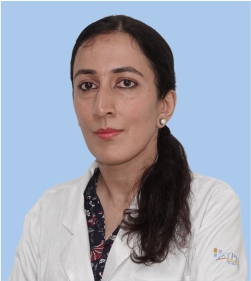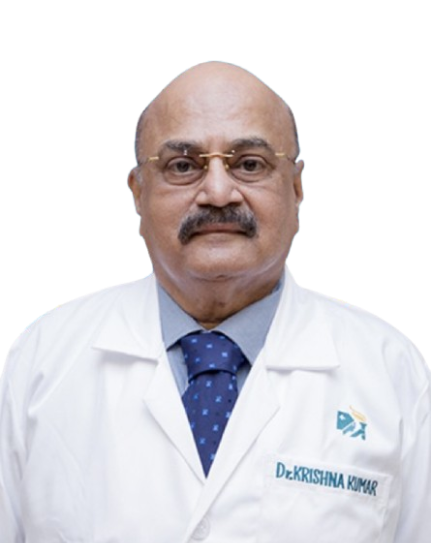Nasal Polyp Surgery: Removal Procedure, Risks, Recovery Time

Treatment Duration
30 Minutes
------ To ------60 Minutes
Treatment Cost
₹ 25,000
------ To ------₹ 90,000

Table of Contents
- What is Nasal Polyp Surgery?
- Conditions treated with Nasal Polyp Surgery
- Who needs Nasal Polyp Surgery?
- How is Nasal Polyp Surgery performed?
- What to expect before and on the day of Nasal Polyp Surgery?
- What to expect after Nasal Polyp Surgery?
- Benefits of Nasal Polyp Surgery
- Risks and complications of Nasal Polyp Surgery
- Risks of delayed Nasal Polyp Surgery
- Cost of Nasal Polyp Surgery
Nasal Polyp Surgery is a surgical procedure done to remove polyps from the lining of the nasal and sinus passageways. This procedure is also known as Polypectomy.
Nasal polyp surgery is performed by an ENT specialist in a hospital or on an outpatient basis. The procedure usually takes about 30 to 60 minutes to complete. Generally, the recovery after the surgery is quick and effortless.
| Surgery Name | Nasal Polyp Surgery |
| Alternative Name | Polypectomy |
| Diseases Treated |
Asthma, Chronic sinus, Sleeplessness, Aneurysms |
| Benefits of the Surgery | Improves breathing, Restores smell sensation, Reduces sinus pressure or infections |
| Treated by | Otolaryngologist (ENT specialist) |
You can check Polyp Removal Surgery (Polypectomy) Cost here.
What is Nasal Polyp Surgery?
Nasal Polyp Surgery or Polypectomy is a surgical procedure done to remove polyps from the lining of the nasal and sinus passageways. The type of procedure required to remove the polyp depends on where the polyps are located in the nasal cavity.
Nasal polyps are noncancerous (benign) growths that may resemble a cluster of grapes. They may be located near the front of your nose or farther back, in your sinuses. They primarily cause breathing problems, loss of olfaction and the development of ongoing and chronic infections in the surrounding area.
Anatomy and Physiology of Nasal Cavity
- The nasal cavity is referred to the interior of the nose. It extends from the external opening (nostrils) to the pharynx (upper section of the throat) and thus is the first of a series of structures which forms the respiratory system.
- The cavity is separated down from the middle by a cartilage known as the nasal septum.
- Further, the nasal cavity can be divided into:
- Nasal vestibule: the dilated area at the nostril.
- Respiratory section: the passage through which air enters and exits the body
- Olfactory region: the region which contains receptors for smell sensations.
- The cavity is entirely lined by the nasal mucosa which forms the physical barrier of the body’s immune system.
- The structures within the nasal cavity regulate the flow of the air into the respiratory system, regulate the sense of smell, and also is responsible for protecting against the invasion of infectious and allergenic pathogens.
Expert Doctors (10)
NABH Accredited Hospitals (10)


Conditions treated with Nasal Polyp Surgery
Nasal polyp surgery is generally performed to remove the polyps from the nasal cavity. However, undergoing nasal polyp surgery also help treated conditions such as:
- Asthma
- Chronic sinus
- Sleeplessness
- Aneurysms
- Sinusitis
Who needs Nasal Polyp Surgery?
Doctors recommend nasal polyp surgery to adult males and females when medications cannot shrink or eliminate nasal polyps and the following nasal polyp symptoms persist:
- Difficulty breathing through your nose
- Decreased sense of smell
- Decreased sense of taste
- Recurring sinusitis
How is Nasal Polyp Surgery performed?
Nasal polyp surgery is a minimally invasive surgery that usually takes 30 to 60 minutes to complete depending upon the patient’s age, other medical conditions of the patient, number and size of the polyps. The procedure is performed under general anaesthesia to keep the patient comfortable. The procedure is performed by an ENT (ear, nose, throat) specialist along with other professional medical staff. The following steps are involved during the procedure:
- The surgeon will advise the patient to be supine on the operation table. In this position, the patient will be lying down on his back.
- The anesthesiologist will administer general anaesthesia to prevent any discomfort during the surgery.
- No incisions will be made at any stage of the surgery, and the entire procedure is performed through the nose.
- Once the patient's condition stabilises after the anaesthesia administration, the surgeon will start the procedure.
- A surgeon can conduct the surgery by two techniques. The technique chosen depends on the location of the polyp in the nose.
- Intranasal polypectomy:
- If the polyp is easily located in the nose, the surgeon conducts an intranasal polypectomy.
- The surgeon uses a small surgical grasper to remove the polyp.
- In the case of larger polyps, the surgeon may be able to remove them using an instrument called a microdebrider.
- Endoscopic nasal polypectomy:
- The surgeon will insert a small tube with a lighted magnifying lens or tiny camera (endoscope) into the nostrils to identify the location of the polyp.
- This is the surgeon to see the polyps more clearly, especially when the growths are located deep in the cavities.
- Once the surgeon locates the polyps, he/she removes them with a microdebrider or surgical graspers.
- Intranasal polypectomy:
- The patient will then be shifted to the recovery room.
What to expect before and on the day of Nasal Polyp Surgery?
The patient may expect the following before or on the day of the surgery.
Before Nasal Polyp Surgery
A patient may expect the following before the surgery:
- The patient must consult a doctor if the symptoms persist for more than two weeks as the symptoms are quite similar to the common cold.
- The doctor would ask the patient about the symptoms, medical history, family history and the medications taken by the patient.
- The doctor might consider examining the patient’s condition by prescribing some tests: blood test, CT scan and certain allergy tests to clarify the situation.
- The doctor might also consider testing the vision and eyesight.
- The patient may be advised to temporarily discontinue some medications, such as aspirin.
- The patient might also be advocated to reduce the physical activities and exercise until further discussion with the doctor.
- The doctor might also recommend the patient fast for a certain period before the surgery.
- The doctor will explain the detailed surgery procedures, duration of the surgery and hospital stay, and how to prepare for the surgery.
On the day of Nasal Polyp Surgery
- The patient must reach the hospital before the scheduled time for the surgery.
- The patient will be asked to sign a consent form before the surgery.
- The staff will instruct the patient to remove jewellery, dentures, and contact lenses before the surgery.
- The staff will ask the patient to change their clothes and wear gowns.
- The staff will also wrap a hospital information band on the patient's wrist. This band will have information about the patient's characteristics and the procedure he/she will undergo.
- A nurse will place an intravenous catheter in the patient’s hand or forearm, and then general anaesthesia will be administered.
- The vitals of the patient will also be monitored.
- The patient will be shifted to the operation theatre for the procedure.
- The surgeon might also start by cleaning and drying the surrounding area of the nose to reduce the risk of any infection.
What to expect after Nasal Polyp Surgery?
A patient who has undergone nasal polyp surgery can expect the following after the surgery:
The recovery process at the hospital
- Post-surgery, the patient will be moved to the hospital ward so that he/she can recover.
- The patient will be kept in observation until the after-effect of anaesthesia wears off.
- The patient might experience some bleeding from the nose shortly after the operation.
- The patient will be prescribed nasal saline douche (salt water) to rinse the nose and some medications including steroids and antibiotics to prevent infections.
- Once the patient’s condition stabilises, he/she will be discharged on the same day.
Recovery process/expectation after hospital discharge
- Instructions provided by the doctor must follow at home.
- The doctor will probably ask the patient to avoid these things in the first few days after the operation:
- Blowing the nose
- Lifting anything heavy
- Bending over so far that your head goes below your waist
- The patient might be given a nasal steroid spray to prevent the recurrence of similar conditions in the future.
First follow-up appointment
- The first follow-up appointment will be scheduled within a week after the surgery.
- The doctor will check the nasal passage to see if they are healing and if there is any need to remove any other unwanted material in the nasal path.
- The doctor might also check if there is a need to install some tubes to reduce the risk of inflammation.
- The doctor might consider the resumption of other medications and drugs that you might have stopped consuming before the surgery.
- The doctor might also change the medication or advise the patient to continue with the previous medication for some more time, depending on the condition and recovery of the surgical area.
- The doctor will advise the patient for further timely follow-ups as well.
Benefits of Nasal Polyp Surgery
Nasal polyp surgery is a simple and safe procedure with several benefits that helps improve the quality of life of an individual. Below mentioned are some of the benefits of nasal polyp surgery.
- Improve breathing function
- Prevents rare but serious problems like complex sinusitis
- Relief from congestion and nasal obstruction
- Restore the sense of smell
- Reduces sinus pressure or infections
Risks and complications of Nasal Polyp Surgery
Like any surgical procedure, nasal polyp surgery has risks and complications. These include:
- Allergic reaction from the anaesthesia
- Damage to nerve endings in the nose
- Damage to eyeballs leading to loss of vision
- Tear duct damage
When is consultation with the doctor needed?
The patient must consult the doctor immediately if he or she experiences:
- Severe bleeding from the nose
- Pain
- Infection
- Common cold symptoms
Risks of delayed Nasal Polyp Surgery
Delaying a nasal polyp surgery can increase the severity of the pain and discomfort in the nose as well as worsen the symptoms of the problems. Below mentioned are some of the common risks of delayed nasal polyp surgery:
- Chronic sinus infections
- Asthma or asthma-like conditions
- Sleeplessness
- Might lead to meningitis in the areas surrounding the nose
- Blood clots
- Aneurysms: Formation of a bulge in an artery
- Weakening of eyesight
Cost of Nasal Polyp Surgery
The cost of nasal polyp surgery ranges from ₹25,000 to ₹90,000. The cost varies based on the following factors:
- Age of the patient
- Type of the procedure done
- Technique and equipment used
- The medical condition of the patient
- The type of hospital facility availed - individual room or shared.
Frequently Asked Questions (FAQ)
What are the myths versus facts about nasal polyp surgery?
- Myth: If I undergo nasal polyp surgery, my smell sensation would get affected.
Fact: No, nasal polyp surgery is a safe surgery to remove the polyp from the inner nasal cavity. After this surgery, the smell sensation in a patient will be restored. - Myth: It is not normal to see bleeding after nasal polyp surgery.
Fact: No, some bleeding from the nose is expected shortly after the operation. However, the patient must immediately consult a doctor if the bleeding is severe.
What is nasal polyp surgery?
Nasal Polyp Surgery or Polypectomy is a surgical procedure done to remove polyps from the lining of the nasal and sinus passageways.
What is the approximate duration of nasal polyp surgery?
Usually, the nasal polyp surgery procedure takes 30 to 60 minutes to complete, depending on the patient's age, medical condition of the patient and the complexity of the case.
How painful is nasal polyp surgery?
Generally, nasal polyp surgery is performed under general anaesthesia to keep the patient comfortable. However, the patient may have some discomfort, congestion, and spotty nose bleeds for a few days.
How long does it take to recover from nasal polyp surgery?
Generally, recovery after any surgical procedure varies for every patient. For a patient to completely recover from a nasal polyp surgery is approximately 2 weeks in most cases.
What are the risks associated with the nasal polyp surgery?
Like any surgical procedure, nasal polyp surgery has risks and complications. These include:
- Allergic reaction from the anaesthesia
- Damage to nerve endings in the nose
- Damage to eyeballs leading to loss of vision
- Tear duct damage
What are the benefits of the nasal polyp surgery?
Nasal polyp surgery is a simple and safe procedure with several benefits. These include:
- Improve breathing function
- Prevents rare but serious problems like complex sinusitis
- Relief from congestion and nasal obstruction
- Restore the sense of smell
- Reduces sinus pressure or infections
What happens if nasal polyps go untreated?
If left untreated, polyps can grow and obstruct the openings of the sinuses into the nasal cavity, causing difficulty sleeping, postnasal drip, fatigue and facial pressure.
How do you sleep after nasal polyp surgery?
Post nasal polyp surgery, a patient must raise his/her head with three or four pillows. This helps in reducing swelling.
How do you permanently get rid of nasal polyps?
The only way to completely remove large polyps from the nasal cavity is through nasal polyp surgery.
What can you eat after nasal polyp surgery?
A patient can eat soft bland foods such as pasta, soups, yoghurt, mashed potatoes, scrambled eggs, etc. for a few days following surgery. Avoid nuts, rice, and seeds.
How do you shower after nasal polyp surgery?
After the nasal polyp surgery, the patient may shower 2 days after surgery. Use a dry washcloth or plastic wrap over the splint/tape. The patient must shower or bathe using only lukewarm water for the first 2 weeks after surgery.
What happens if you sneeze after nasal polyp surgery?
After the nasal polyp surgery, if a patient sneezes, it may cause swelling around the eyes and may also cause bleeding. Please contact the doctor immediately if the issue persist.
What is the cost of nasal polyp surgery?
The cost of nasal polyp surgery starts from ₹25,000 and goes up to ₹90,000.
Why does the cost of nasal polyp surgery vary for different patients?
The cost of nasal polyp surgery differs due to factors including the patient’s age, the type of procedure done, techniques and equipment used, the type of hospital, and the admission room that a patient opts for.
Does insurance cover nasal polyp surgery?
Yes, all health insurance plans cover nasal polyp surgery. Paperwork is facilitated by our team on your behalf ensuring smooth approval and a cashless facility. Contact HexaHealth for a simple cashless and hassle-free experience.
More Treatment options
Last Updated on: 30 September 2022
Author
HexaHealth Care Team
HexaHealth Care Team brings you medical content covering many important conditions, procedures falling under different medical specialities. The content published is thoroughly reviewed by our panel of qualified doctors for its accuracy and relevance.






















